As we approach the summer, it’s a great time to start thinking about self-care. Life and health coach, Abbie Stasior, joins me today to all about how we can take better care of ourselves and develop self-love.
Links and Resources:
Abbie Stasior on Instagram – @abbie.stasior
Full Transcript of Podcast: 4 Self-Care Tips for SLPs feat. Abbie Stasior
Episode 53: 4 Self-Care Tips for SLPs feat. Abbie Stasior
Jessica: You're listening to the Speech Space Podcast, a podcast full of tips and resources for SLPs. I'm your host, Jessica Cassity, and this is Episode 53. Hey everyone! Today we are going to be talking about self-care and self-love. I'm so happy to have a health and life coach, Abbie Stasior, joining us today to explore this topic. But before I dive in, I wanted to let you know that this podcast is brought to you by The Digital SLP membership site, which is a site that features time-saving no print and low prep resources for SLPs. To learn more about the membership head on over to thedigitalslp.com/digitalslp. So before we get started, let me give you a little bit of background about our special guest today. Abbie Stasior is a health and life coach who is passionate about preventing chronic conditions, such as diabetes and high blood pressure. She recently changed her path from attending medical school to pursue a career on the preventative side of a patient's health and wellness. She is the CEO and founder of her company, Be About Being Better, LLC. And she's also pursuing her Master's Degree at Columbia University's Teachers College in Nutrition & Exercise Physiology. She believes that if you can weave your healthy habits into your busiest day, you can maintain a healthy lifestyle for the long term. And if we develop a foundation for our health, we can leverage that to be better, more successful, and feel more fulfilled in all other areas of our lives. So Abbie helps women every day make healthy living simpler and be able to integrate things into these strategies into their busy lives and ever-changing schedules, which allows women to feel energized and empowered to strive for a higher level of success. She is an expert in helping us to just be better. So without further ado, let's go ahead and bring Abbie on the show. Hey Abbie! Thank you so much for joining us today.
Abbie: Of course, Jessica, thank you so much for having me!
Jessica: I'm so excited to talk about self-love and self-care but before we dive in, I did want to know a little bit of background on how you got interested in the area of health and wellness.
Abbie: Yeah, absolutely. So I come from a whole family line of doctors. My dad, my grandfather are in a private practice together. So I always grew up being around medicine, health, and wellness, and my dad and my grandfather especially are very progressive in wanting to be on the preventative side. And they care so much about nutrition, even though they're ophthalmologists and eye plastic surgeons, you know, nutrition was always a part of that. And how can you eat well, you know, for your eye health and preventing macular degeneration and all of these sorts of things. So that always got me sparked and you know, I have a background in dance, so I was always very active as a kid growing up and you know, my brother and sister are in sports. So I was always surrounded by that. And for a long time thought medical school was my route because there are so many doctors in my family, that just seemed like the most natural thing to do. But spending some time last summer in the medical field, I really got to see the harsh realities. And it's pretty scary what, how late we're catching people. And most people have these chronic conditions that we can't reverse. We just have to manage them, either a surgery or medications. So that got me personally more on the wellness side, because I want to help people with their lifestyle earlier on to prevent these chronic conditions.
Jessica: Yes, that makes so much sense. I don't know if you know anything about me. I don't talk about it too much, but I have a lot of chronic illnesses and some health issues. So this is a great area of interest to me. I'm definitely going to be listening and the macular degeneration, you can actually prevent that?
Abbie: I think you can help mitigate it or mitigate the risk.
Jessica: Wow, that's interesting!
Abbie: Yeah.
Jessica: My mom had the genetic testing done and she's like, just so you know, you have a really good chance of getting macular degeneration. I'm like, I don't know if I wanted to know that, but thanks for telling me.
Abbie: A lot of vitamin C helps.
Jessica: Okay, good to know. I'll start taking some. So why do you think that self-care is so hard for women?
Abbie: It really is so hard. And I think a lot of people fall into those stories that they tell you, I'm too busy or I'm too tired. So I don't have time to care for myself cause I have so many other people to be responsible for. And it was so funny. You know, that you're asking me this today, cause I was just talking to a client before we started this and she said I get so much energy from boosting other people up and making other people feel good, but I'm just completely depleted right now. So I was trying to explain to her that it really is hard and that's such a natural thing to give to other people, but we don't have that same care for ourselves because it makes us feel good to give to other people. But at the time, like if our pitcher is empty, we can't pour into the glasses of others, how we want to. So I think it's hard because we care so much for other people and we feel selfish if we give that same care towards ourselves. But in reality, we have to care for ourselves so that we can give to the fullest capacity to other people.
Jessica: Yeah. I feel like I'm hearing so much of that more and more lately that if your cup is not full, you know, you can't, you can't take care of people. I mean, I'm just thinking as a mother, you know, I hear a lot about if you're not getting enough sleep, if you're not eating right. If you're not taking care of yourself, then you know, you're going to have a hard time taking care of your children because you're going to be moodier, you're going to snap at them easier. So you know, you have to start with you to be able to be the best mother that you can be. And I'm sure that applies across the board, you know, for everything. Okay. So what do you think it is about self-care? I think you just pretty much touched on this. What is so important? Why must we really, really pay attention to this?
Abbie: So I think we need to pay attention to self-care because it really is the gateway to self-love and I really think that's the goal, right? Like, yes, we want to care for ourselves. But I think the goal is we want to love the skin that we are in. We want to love ourselves. We want to feel comfortable with ourselves and we don't want to always feel like we have to be with other people because we're scared to be alone. We don't really like ourselves. So I think that's really the end goal is to find this place of self-love, to find this comfortability within ourselves and to then use that, to spread love to other people and to feel just confident in ourselves, confident in our careers, confident in our relationships. So self-care really is the gateway to self-love. And I think a lot of people get confused between the two and we use them interchangeably.
Jessica: Yeah. Can you explain the difference?
Abbie: Yeah, absolutely. So self-love is real love. Like we know very clearly what it's like to love another person, right? We know those feelings, like we can feel that, we've all loved someone or something—but it's directed towards ourselves. So I think we know so clearly what love is, but as soon as you put the word self in front of it, we're like, whoa, what's that word? I don't know what that means. It's a little ambiguous. It's like, no, it's just love as if we would love somebody else, but it's directed towards ourselves. So it's those feelings and then self-care are really those tangible, intentional action steps and things that you do to love and care for yourself. The attention that you bring towards yourself, just as you would care for another person. So the more that you practice self-care, that's how you start to foster and develop that relationship of self-love. So if we're thinking about it like a relationship, because we know what love is, right. We know what it's like to love another person. Like when you talk to them positively, you show them respect. You're kind of wooing them, right? Like you're, you know, going out, especially in the beginning, like, you know, holding doors for them or you're opening the car door, you know, paying for the dinner bill, like all of these sorts of things. Like you're really taking care of them and you're speaking to them positively and you're showing them a lot of respect and you know that to deepen that relationship, you have to continue to speak positively. You have to continue to be honest and show them, you know, care, respect, and attention. And if we spoke to other people, the way that we speak to ourselves, there would be no relationship there, right?
Jessica: Right.
Abbie: Women are always saying to themselves, I'm sure men do this too. But I work primarily with women in my health coaching program. So I hear this all the time where they're saying, oh, you know, I'm not good enough or I'm too fat or they're, you know, I can't do this. Or, you know, again, I'm not good enough. And you know, all of those things, like if we said to another person, all of those negative things that we're thinking towards ourselves, that probably wouldn't be a friendship. There probably wouldn't be a relationship there. So why is it such a stark difference? And I really think it stems from us caring so much for other people, but not showing that same care, love, and respect towards ourselves. But the more consistently you do that, the more that you foster that relationship. And eventually that will lead to love. Cause right, you know, I know there is love at first sight, but most of the time, most relationships, they take time where you're in that kind of like, I like you, like you type phase. And then it develops over time through more care, love, respect, getting to know each other, and all of these sorts of things. Eventually that leads to love. So we have to know that this is going to be a process with ourselves, but it starts from showing ourselves that same care, love, and respect that we would show to other people.
Jessica: Right. That makes sense. Now, do you believe like you have to start with one or the other or with self-love or self-care to get, you know what I mean? Or you do both?
Abbie: I personally do both because I think, well, think about it this way. If you're getting in the car to go on a road trip, the first thing that you do is you put the address in your GPS so that you know where the destination is. So it's the same thing. When it comes to self-love and self-care, you have to know what the destination is. Because you can start caring for yourself, like obviously we need basic needs and you know, taking care of ourselves that way, but you have to have that end goal, the end vision in mind. So you have to know first, like how do I want to feel to myself? Like in an ideal world, how would I speak to myself? If I had self-love, how would I speak to myself? How would I carry myself in work? How would I speak to other people? What would my morning routine look like if I love myself? How would I speak to myself as I was getting dressed? You know, if I was in the shower, like all of these sorts of things. If I really had self-love, what would that look like for me? So I think people need to focus first on the destination and what is that ideal? Because then your actions will start to fall in line with that.
Jessica: Yeah, that makes total sense. I think the self-talk probably for a lot of us is big one to work on. I mean, I think that it's so easy, especially, cause you're not usually saying these things out loud, they're just kind of in your head, you know? I think that would be a good starting point probably for a lot of women. Would you agree?
Abbie: Oh, absolutely. It's one of the first things that I do with my clients is I have them each establish a daily affirmation statement. So right now they're at Point A, but they really hope to be this healthy, happy, fulfilled person at Point B. So I have them flushed that out. Who is that person? How do they speak to themselves? And we come up with a statement, they write it every single day and this helps them tap into who they want to be. And you know, that vision of themselves really feeling that self-love, and that helps them actually like prime their brain and change their subconscious. Like change their identity at a subconscious level so that they start believing all of those things. And once you start to believe it, then your actions will align with that. I find that a lot of people, because it's all in your head, all of these negative self-deprecating thoughts, they're most of the time they're fleeting. And we're conditioned to think all of these things, right? If we're, you know, on the phone or if we get frustrated at work or if we're stuck in traffic, or if you're in a long line at the grocery store, these thoughts are just automatically running through. If you're rushing, you're like, oh, you know, why did I do this to myself? I always do this. Like, you know, I suck like this is, I'm not an organized person. Like we're reinforcing all of these things. And I don't know if that's what, you know, everybody says to themselves, everybody has their own examples of what self-deprecating thoughts are mean things that they say to themselves, especially in those times of stress. But most of them, we don't even notice it because we're so conditioned. So what I do with my clients is that daily affirmation statement is a way to each day invite... okay, but what's the ideal, what are we working towards? And how can we start to bring that more and more, not in the future, but into today, how can we feel that today and start to bridge the gap from where we are at Point A to where we hope to be at Point B. Does that make sense?
Jessica: That makes so much sense. It really does.
Abbie: I was actually a neuroscience major in college. So I'm very... I love brain priming. I love talking about the subconscious in your hind brain. Cause a lot of our habits are in our subconscious mind and these self-deprecating thoughts, like we think a bad habit, like smoking, right? We always, we go there and we think about habits or snacking at night or, you know, food cravings, but the self-deprecating thoughts are also a habit and we make them a part of our identity. So you have to change that at a subconscious level to really see the long-lasting change. You can do all the self-care that you want, but if you're not changing your thoughts and rewiring your brain, then you're not gonna be able to change your identity. At some level, you will still keep saying like, I'm not good enough. I suck, I'm too fat, XYZ, whatever your statements are.
Jessica: Right, right. Yeah, exactly. So what are some actionable steps that our listeners today could take to kind of start paving that path toward self-love and you know...
Abbie: I love this so all about the action steps, right? Cause it's great to talk about these things in theory, but what can we actually do today? So I love this question and I think the first way is definitely developing a daily affirmation statement. And I know that this might seem a little woo-woo to some listeners out there, but mindset is really key. And if you think about that person that might be, you flush them out. You know, where you hope to go, you can come up with, you know, a little statement like, you know, I am so confident in my own skin. You know, giving myself the care and attention that I deserve gives me more energy everyday. It allows me to be present with other people like whatever your statement is, you could write that same few sentences every single day and just let yourself feel what it feels like to tap into what you want to be. So I think developing that statement would be really helpful. One thing I recommend is to purchase The 5-Minute Journal. I gift it to all my clients that go through my 90-day academy. And it is just, it literally, it should be called the 2-Minute Journal, takes two minutes to go through. At each day, there's a section to write your daily affirmation statement. So I think that this is a really good one. I mean, you can get it on Amazon, really great way to start this beginning journaling process, but also that priming of the brain process as well.
Jessica: Definitely. That sounds perfect. Two minutes?
Abbie: Yeah, right. Two minutes, a little thing in the morning and then in the evening to recap your day. But the daily affirmation statements, that's why I love that journal because it has that component. The next thing that I would recommend would be to structure and almost be selfish with your morning and evening routines. We have so many people that we need to cater to in our day. And especially if you're a parent, like your whole day is centered around your children and the other people you have to take care of. But if you could, you know, be a little like selfish and harbor your morning and evening routines, you'll just feel so fulfilled and your glass will fill up so that you can again, pour that pitcher into the glasses of others. An easy way to think about your morning routine, most people think of it as just a list, all the things that you need to do in the morning. Okay, great. But going through like that, it's just so passive and I found that you can be... you're more successful with your morning and evening routine if it's intentional. So I always say if you're looking to restructure your morning routine and looking to find more time for yourself to practice self-care and just feel good at, you know, in your day, start with the three adjectives that you want to feel walking into your first commitment of the day. So do you want to feel confident? Do you want to feel energized, happy, prepared, you know, not rushed? All of these are like, figure out what it is for you. What are those three words and then structure your morning routine so that it allows you to feel those things. So if you want to feel energized in the morning, okay, great. Like maybe it's a morning workout or maybe it's listening to an empowering podcast. Or if you want to feel relaxed, maybe you need to meditate or maybe you need to journal in the morning or maybe it's a 15-minute stretching routine. I don't know exactly what it will be for you, but that's how you make it intentional and specific. It's like, I love doing my morning routine because it allows me to feel XYZ. So it's not just a list of things that you're doing or have to stick to, but it's intentional. Like I need to do this morning routine because it allows me to feel how I want to feel throughout my day. And then your evening routine, you kind of work backwards. How can I best prepare for my morning routine that will allow me to feel how I want to feel throughout the day. So that's, you know, an easy way to start structuring your morning and evening routine and kind of being selfish with that and more intentional.
Jessica: Yeah, and I love that you're focusing on how it makes you feel versus like you said a list because sometimes you might feel like, oh, I have to work out in the morning or I need to work out in the morning, but maybe if you are going for a more mellow vibe in the morning, then maybe working out in the morning isn't going to meet your needs. You know? So I like that you're basing it on what you feel, you know.
Abbie: Exactly. And that's really the basis of self-love is what makes you feel good? And then yeah... Is self-care selfish? You know, in a way I think, yes. Right? But not so much in a bad way, it's like it's necessary so that you can be present with other people, so that you can give your full energy to other people. So yeah, we can kind of say that it's selfish, but not in the way, not in the negative connotation that we think it is, that it's taking away from other people. I think people that aren't practicing self-care, aren't working towards self-love, or doing the people around them a disservice because they're not being able to give to them at the fullest capacity. So some other ways, definitely. I mean, you mentioned exercise so exercising in the morning, is it going to make you feel best? We got to find another time to schedule that because exercise is definitely necessary. Just makes you feel so good. And I get this question a lot and this could even be probably another podcast episode, but can you have self-love and fitness goals? Can you love where you are and who you are today, but still want to change? I get that question a lot. And I absolutely think that you can. I, 100% believe that you can because self-love is accepting where you are today, giving yourself grace for where you are, and appreciating where you are today, and also the journey. So to be on a healthy... health and fitness journey, if you're looking to lose weight or gain muscle, or just be more energized, whatever it is on your health journey, it's a journey. A lot of us have these goals in mind that we want to hit this destination when we lose X amount of weight or, you know, drop down to this pants size. But really you'll have the most successful health journey and be developing self-love at the same time if you love yourself and appreciate yourself and your efforts at all stages, rather than not being okay with yourself until you hit that. But that condition, like I can't be happy with myself until I'm 10 pounds down or until I fit into this dress. So you have to find a way to appreciate yourself at all stages. And the easiest way to do that is to find things to celebrate and just make the process more fun too. So if you are mad that, you know, you still haven't seen the arm definition, you know, or your triceps, for example, I hear this all the time from women, ah, my triceps aren't as tone as I want to be. I was like, you know what? What's something that you can celebrate? And you know, I'll ask my client like, well, I went to the gym everyday, this week. That's something to celebrate. Like even though your body may not be where you want to be yet, you're going through the motions. You're doing things to get there. You know, you're taking that action. So finding real things to celebrate throughout your journey will make it more fun and more enjoyable. And you'll start to appreciate your body rather than, you know, braiding it and being self-deprecating towards it because it's not good enough yet until you hit that condition. So that will help on the journey and also make it more fun. Like if you're working out on the gym and it's just a very toxic environment for you, like it was for me when I started, I felt like everybody was staring at me. I didn't know what I was doing. I had to pick a treadmill that was like facing away from the gym. So I just thought everybody was staring at me. I didn't feel comfortable in my gym clothes. I'd wear these big baggy t-shirts because I wasn't comfortable in my own skin. And so now, I do laundry all the time because you know, I've, you know, especially for Christmas or birthdays or, you know, I'm always asking for more workout clothes because I love to wear the workout clothes that make me feel good. And my rest days are normally on my laundry days because I don't want to wear it like, oh, the workout clothes that are leftover, I want to wear what makes me feel cute and good cause it makes the gym more fun and enjoyable. I always got a fun playlist planned and for a while I couldn't go to the gym. So I worked out at home and I went to classes and I went to workout, you know, at Orangetheory or yoga classes with friends and it made it more fun for me. So if you can find wins and find a way to make the health journey more fun, it won't feel torturous or like, oh, I need to go to the gym to work off what I ate and drank over the weekend.
Jessica: Right.
Abbie: Not the best approach and it's the habit that most people are in, unfortunately. That kind of leads to nutrition. That's really the last thing.
Jessica: Okay.
Abbie: The last tangible thing. I think so many people and just because I work with women, I hear this all the time. We're so good, Monday through Friday, and then the weekends, we totally let ourselves go. And it's because I just worked so hard all week. I deserve this drink.
Jessica: Like me...
Abbie: Right? We say this all the time. And when we get into that habit of saying, I deserve this, or I need this, or this is going to help me relax. Then we're using that food or that drink as a reward. And it's not the healthiest association with our nutrition habits. So there are some things that I recommend, you know, I'm all about, you know, having a good cocktail, especially entering the summer and people are going on vacations. Like we want to have a little happy hour, right? And we want to be able to enjoy fun meals. And we don't want to always have to avoid the pasta dish or be like, we have to get a salad at restaurants. There is a healthy way to go to restaurant and still enjoy the fun drinks in the social situations that we love while still staying on the wagon. We don't have to completely fall off the wagon to be able to be social. So the way that I would recommend to you and all of your listeners is to stay in an 80-20 balance. And this is something that is really easy, really tangible to choose. You could even start this today. So 80% of your week, you want to be focusing on eating whole clean, fresh foods, eating very nutritiously, but also just being healthy 80% of your week, right? Like you want to be exercising. You want to be in good morning routine, drinking enough water, sleep, all of these sorts of things, 80% of your week. That's great. Then 20% of your week, you know, you want to take a rest day from exercise. Who want to exercise seven days a week? And you also want to invite some treat meals or fun meals. Now I don't say cheat meals, cause we're not cheating on ourselves, but we're allowing ourselves a treat. And I've found that that allowing ourselves to have that 20% helps us feel like we're not restricting and we don't have to go overboard with all these things. Cause we know, hey, I'm always gonna allow myself every week to have a little, little something, something. And it helps if you don't save all of your 20% for the weekend. Cause then we get into that Monday through Friday, I am amazing and I'm so clean and I'm on track. Then the weekend I'm letting myself go. So then on Monday I'm hating myself cause I have to restrict, have to go to the gym to work off what I ate. I have to restrict my calories because I ate too much over the weekend. So if you can find a way to weave that 20% into your week, weave that 80% into your weekend and you'll, you'll actually have a nice balance. That's a really easy and tangible way to start healing your relationship with food and developing self-love and practicing self-care through nutrition.
Jessica: And I love that you call them treats, little treats instead of cheats cause there is such a negative connotation with the word cheating, you know? So that's really, I really, really liked that.
Abbie: Yeah, I do too. With cheating, you just feel like you have to be secretive. You can't tell anyone and it just has to be hidden and it's guilt so much guilt and so much shame. And that's exactly what we're trying to get away from when it comes to self-love and practicing self-care.
Jessica: Wonderful. Wonderful. Um, is there anything else that you would like to share with our listeners? I did want to touch on, I know that you talked a little bit about your 90-day health coaching program. I'm going to share a little bit about what that entails and if anybody's interested, how they can check that out.
Abbie: Yeah, absolutely. So when I decided that I wasn't going to go to medical school, like what was that medical school, but is it so I ended up, I have my own company and I have three different coaching programs and I offer my most popular one, especially for the entry-level. People that are really looking to kickstart their health journey is my 90-day Be About Being Better Academy. And this is a program, I know that it's 90 days, but it's not a quick fix. It isn't something that you do for a little bit before falling off the wagon. It's a program for committed women who are just looking to find a healthy lifestyle. They just want it to be easy and they want to figure out what works for them. So in the program, I customize everyone's plan and I work with each client to ensure that we can fit this healthy lifestyle into their busy schedule. Because I'm a firm believer that if you can be healthy on your busiest day, if you can find a way to weave some of that 80% right into, into your busiest day, or if you're on vacation. Then you can be healthy for a lifetime. And that's when I go, I want to help people stay healthy throughout their lifetime so that they can mitigate their risk for developing those chronic conditions at the end of their life. So that's really my big vision, but we start small like, you know, what are the healthy habits that will work for you in the demands of your schedule and amidst your commitments? How can we figure out, you know, through trial and error and trying to customize things in those 90 days. And how can we streamline those and hold you accountable, consistent with those so that you can be set up to remain that way for the long term. So the program is structured, not just putting you on another health kick, but how can we set you up for success to be healthy your whole lifetime.
Jessica: Right. Right. So not a quick fix, but just a total kind of lifestyle makeover.
Abbie: Exactly. Exactly, and the community is so fun. It's nice to be around other like-minded women too, that are driven. Cause I find that some people have such sabotaging people in their communities. There are people that aren't aligned with their priorities and their goals. So to be in a group, in a community of women that they're all working on their own goals, but they come together with just being very like-minded in that they're wanting to improve their health. And the way, you know, if you want to learn more about me or the academy, or if you're interested in applying the best way to do that is find me on Instagram. I'm on Facebook too, but Instagram, my handle is @abbie.stasior. And the application is right in my bio or you can send me a DM.
Jessica: Perfect. Perfect. Is there anything else that you would like to share with our listeners before we wrap up today?
Abbie: Well, I do a lot of free challenges. So if you liked what you heard today and you want to know more of these tips for, you know, for living healthy lifestyle and really kickstarting that, then, I'm actually running another free challenge coming up in a few weeks to kickstart the summer. Yeah. So if you want to get in on the group, the link to do that is, and I do a lot of free trainings in this group as well. It's all a group of women that are on their health journeys at different stages. I have current, former clients in there, but just other women on their health journey, super, super fun. So it was just my free Facebook group, where I run these challenges. You can get into the group by going to, it's http://group.beaboutbeingbetter.com/ and that's it. And I'll approve your request to join the group, but really, really excited there. And I think if you're looking to develop self-love and really feel confidence and just more energy and feel like you have more control over your days, it starts from the simple, healthy habits. It starts with your routines. It starts from really harboring that time for yourself, fueling yourself nutritiously, exercising. It's the basics. Once you have that foundation, you can leverage that. You can use that as a stepping stone to be better in life and give to other people to your fullest capacity.
Jessica: Right. Exactly. Exactly. And anybody who's listening right now and driving, I will make sure to put those links all in the show notes. So you don't have to worry about writing them down.
Abbie: Awesome.
Jessica: All right. Yeah. Well, Thank you so much, Abbie, was such a pleasure to have you on the show today.
Abbie: Thank you so much. I really appreciate it.
Jessica: Wow! That was so much great information. I hope that you all found Abbie's advice to be as helpful as I did. Don't forget that the links that she mentioned are in the show notes, so you can easily access them. You can get them by going to bit.ly/selfcareforslps. So sadly, this is the last podcast for the 2018-19 school year, but I will be back to podcasting at the end of the summer. So you can definitely expect a fresh new episode after, I'm sorry, at the end of August or either the very beginning of September, I haven't chosen a date yet. I'm going to miss checking in with you guys this summer, but I know that you're going to be applying some of these great tips from Abbie to practice self-love and self-care. So I hope that you all have a wonderful summer. And like I said, the show notes from today could be accessed by going to bit.ly/selfcareforslps. If you would like to learn how you can cut back on your prep time for the next school year, head on over to thedigitalslp.com/digitalslp. All right, my friends that is going to be it for me for the summer. So I hope that you have a wonderful summer and I look forward to catching up with you guys in the fall.


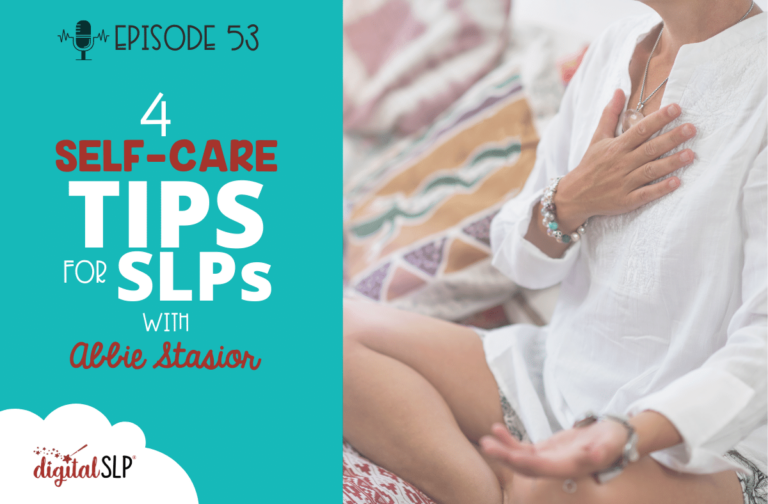
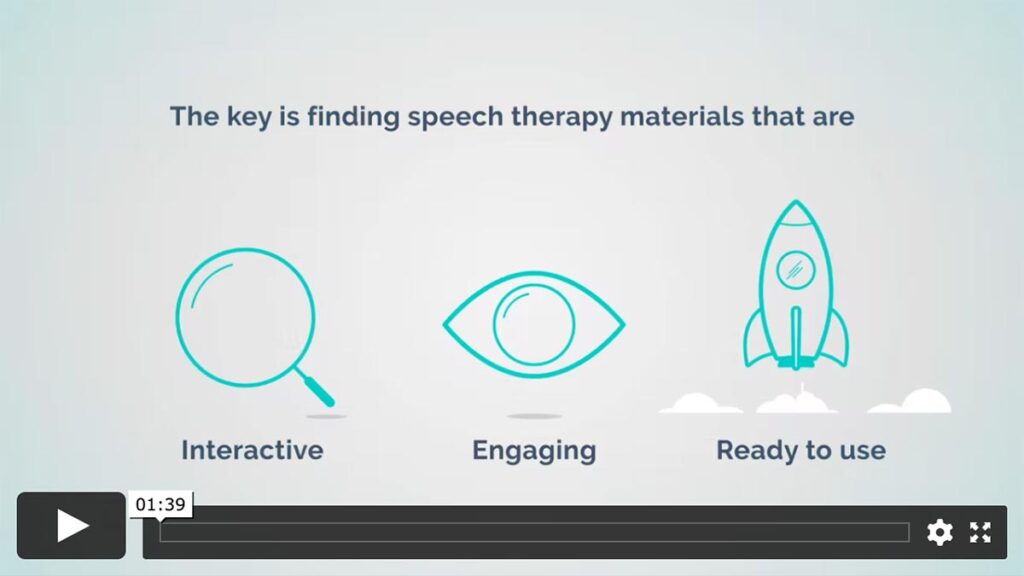
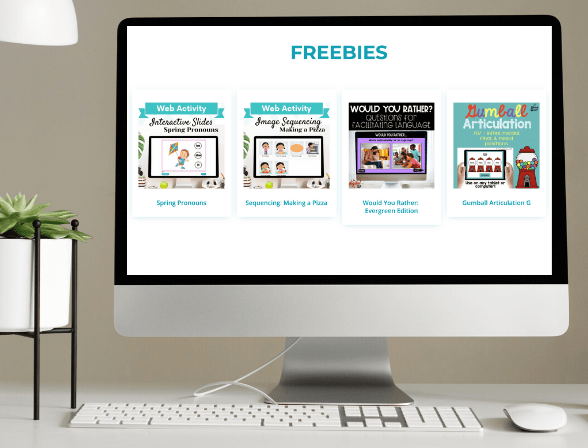

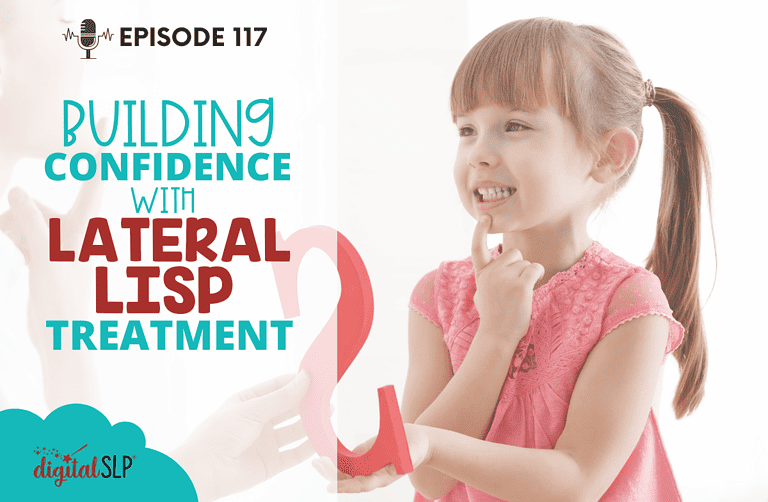
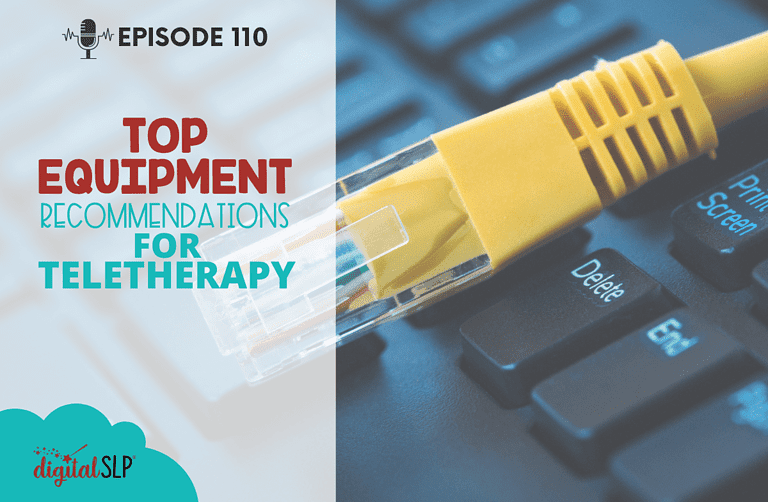
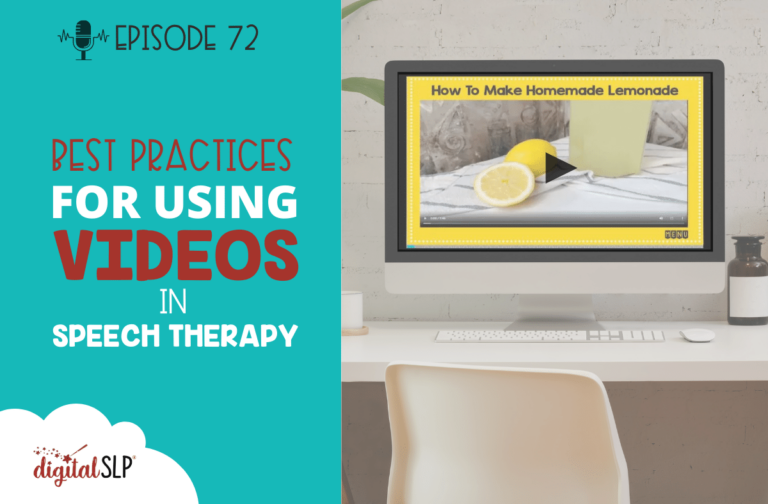
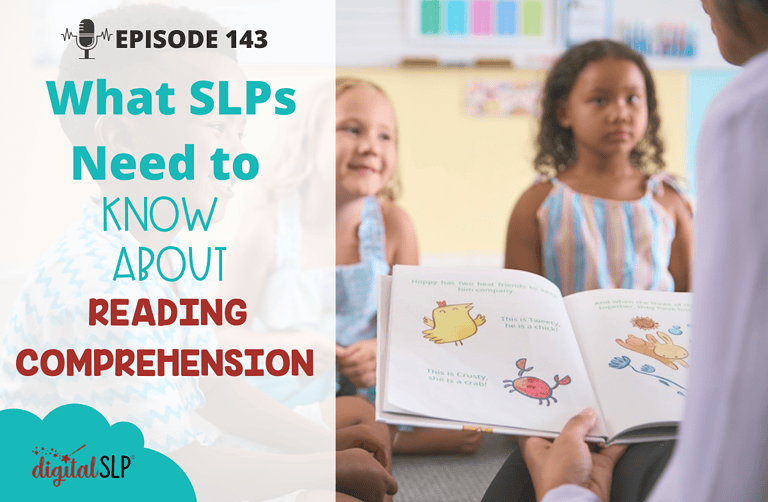
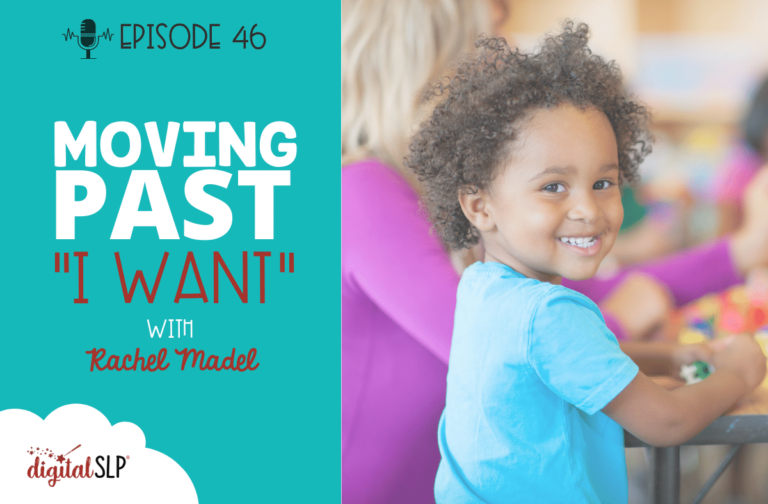
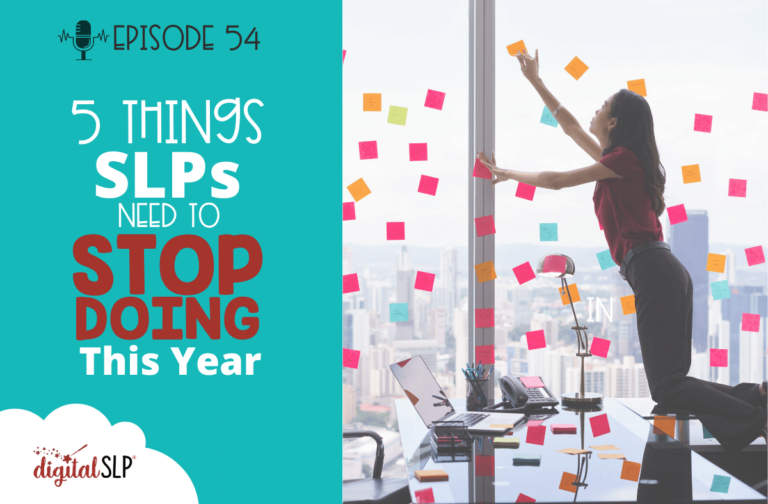

Recent Comments